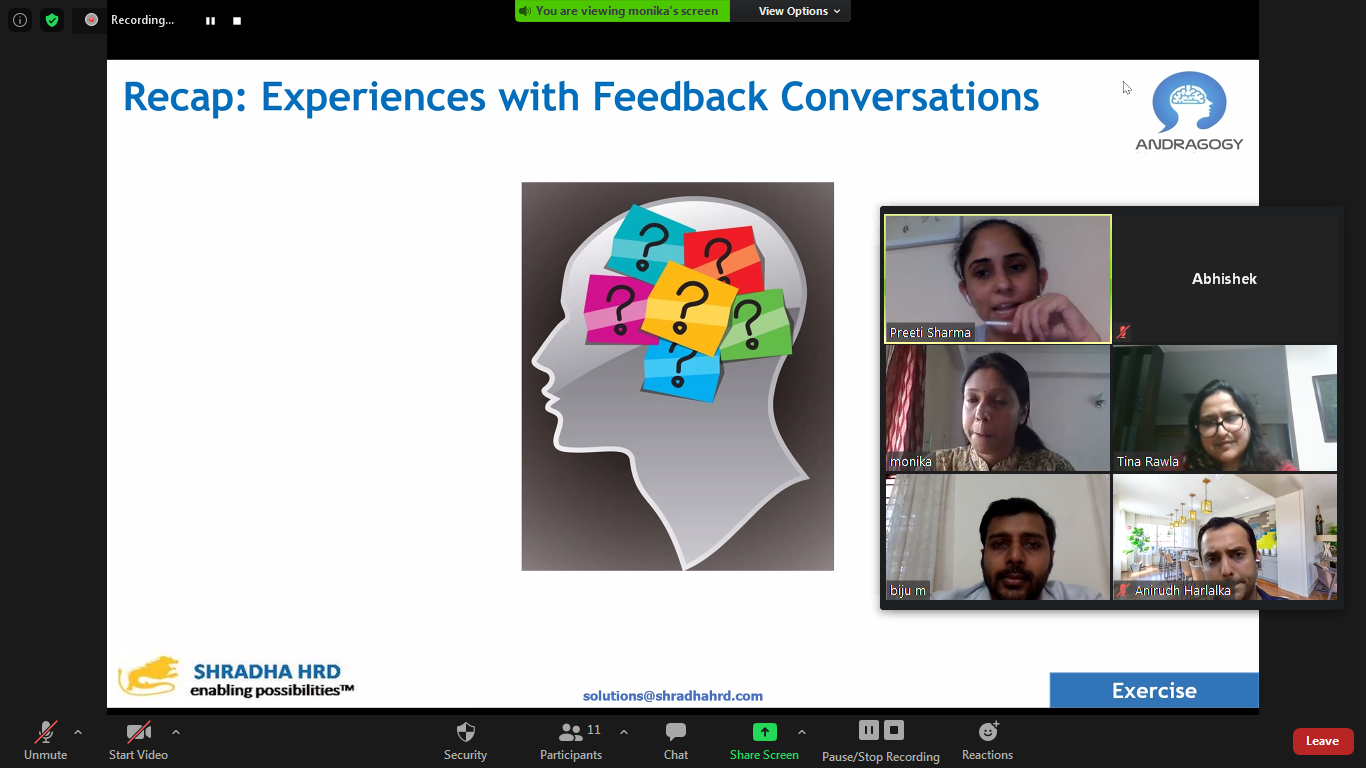This initiative was rolled out to Women Managers for a Global Telecom Company.
Women as a group tend to be largely reticent in talking about their work & their USP’s. Very often they struggle to highlight their achievements. Research has shown that Men are far more comfortable creating a Buzz around their work. These inherent traits sometimes account for the Achievement gap between the Sexes.
With this context as a background our clients felt that an intervention which helped Women Managers explore what they would want their Personal Brand to say & then use the right tools to make their Personal Brand come alive would help Young Women leaders in their Organization.
Some aspects that were discussed in the training were,
- What is Personal Brand
- Discovering your Personal Brand
- Tools to build your Brand
- Using Social Media effectively to Network & Build a Brand
The Lockdown necessitated that the program was delivered Virtually. The program needed to be thoughtfully designed, keeping in mind that our participants were Working from Home and had limited bandwidth. The technology tools used were largely Audio and Chats. The bite sized nature of the training was found to suitable for the virtual platform, and it succeeded in keeping the participants engaged and informed.
Participants felt that the Program allowed them to introspect on what they wanted their Personal Brand to stand for. In the day to day rigor of work and home, we often don’t get this opportunity to step back and look at where we want to go and if the path that we are on will take us there.
During the Program Recap, 2 Participants told us about their Personal Action Plan and how they were going to actively leverage Social Media for Building their Professional Networks.
Shradha HRD is a Women dominated organization and it is immensely fulfilling to conduct Programs where we can share our experiences gathered over 20 years to help empower Women Managers. We are Extremely Thankful to our Clients that continue to give us interventions like these, that allow us to add value in so many different ways !!!!!!!




















